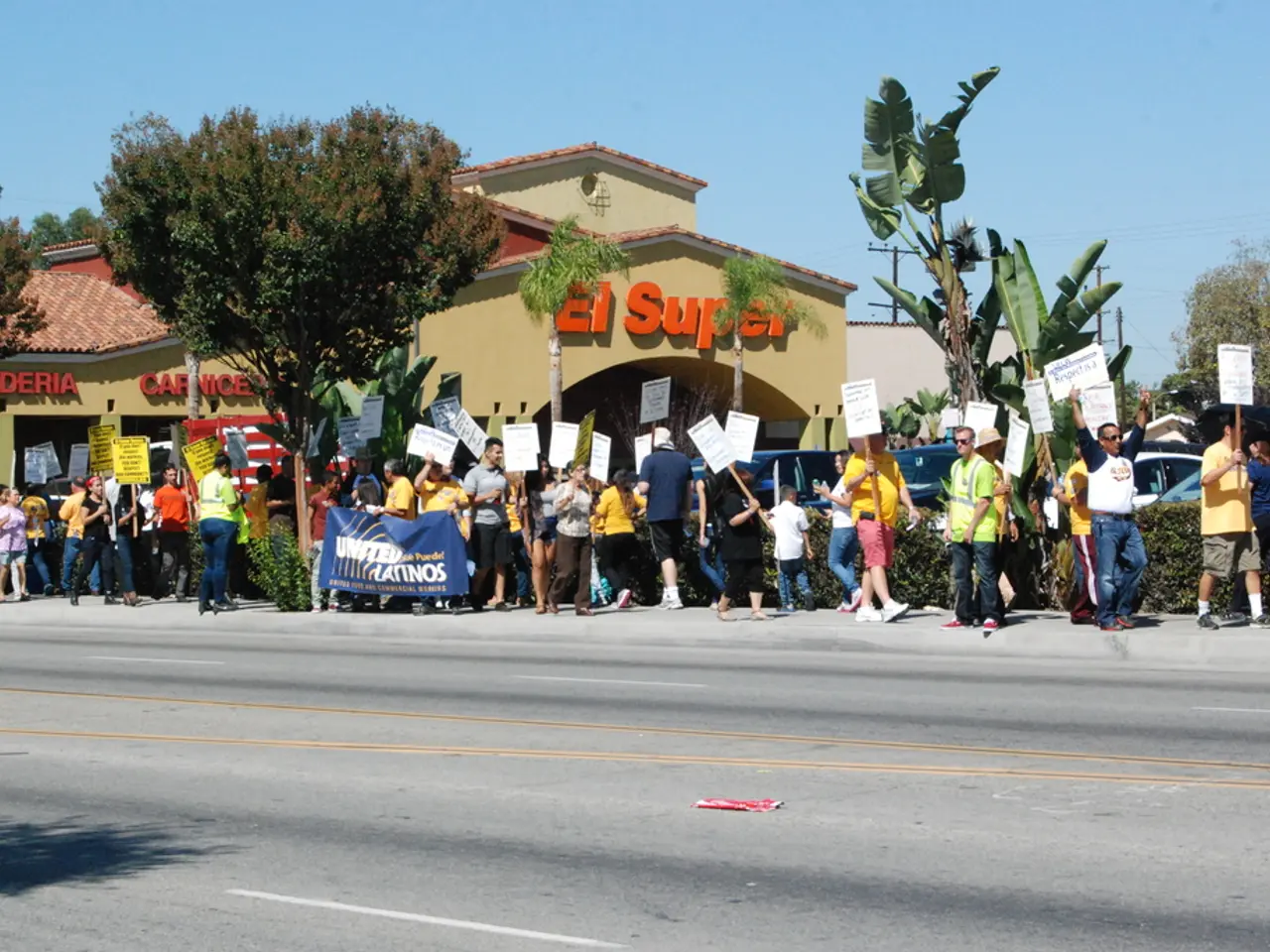Incumbent mayor, Jörg Rotter, clinches victory in Rödermark's mayoral race with a new election record
Rödermark's Mayoral Election: Rotter Secures Landslide Victory
In the recent mayoral election held in Rödermark, incumbent Jörg Rotter from the Christian Democratic Union (CDU) secured a historic victory with an impressive 76.02% of the votes. This marks the first time a CDU candidate has won a mayoral election in Rödermark with such a high percentage of votes.
Rotter's strongest performances were in the neighborhoods of Urberach and Messenhausen, where he received 83.3% and 81.4% of the votes respectively. Heino Claussen-Markefka, the candidate from another political party, had his best performance in the neighborhood of Waldacker, securing 31.6% of the votes.
The voter turnout in the mayoral election was 45.6%. Despite no specific recognition or thanks being mentioned in the official announcement for either candidate's fair campaign, both candidates met for a joint photo opportunity after the election announcement, emphasizing the fair nature of the campaign.
Rotter expressed his gratitude for the trust shown in him during the election and emphasized the importance of the broad, cross-party basis of support for the upcoming municipal political challenges. He also expressed his intention to use this broad support as motivation for the upcoming term.
This election result reflects the broad, cross-party basis of support that Rotter received during the mayoral election. It is also noteworthy that this is the first time an FDP candidate has received such a high number of votes in a mayoral election in Rödermark, with Heino Claussen-Markefka achieving 23.98% of the votes.
Jörg Rotter will begin his second term as mayor of Rödermark on July 1, 2025, and the term will last until June 30, 2031. The election results in the individual neighborhoods show where the candidates had their respective strongholds.
A Look Back at Rödermark's Political History
Jörg Rotter, a notable politician from Rödermark, has achieved significant victories in local elections, demonstrating strong support in the community. His campaigns typically emphasize stability, local development, and community services, which have resonated with many voters.
Heino Claussen-Markefka, another important figure in Rödermark's political scene, has generally been behind Rotter in electoral performance, indicating a secondary position in voter preference. Claussen-Markefka's campaigns might focus on alternative policy priorities appealing to specific voter groups.
For more detailed comparative analysis, please specify the election cycle or type (e.g., mayoral, municipal council), and I can provide a deeper overview based on available data.
What about the possible impact of this victory on policy-and-legislation in Rödermark's general-news, considering Jörg Rotter's second term as mayor?
Given Rotter's strong performance and Heino Claussen-Markefka's focus on alternative policy priorities, how might the dynamics of politics in Rödermark evolve in the upcoming term?








